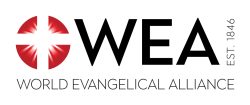on the vaccines
Should you get the COVID-19 vaccine when it becomes available? Are the vaccines ethical? Here you can find resources and discussions on the vaccines from the WEA network.
While Waiting for the Vaccine
It is crucial that efforts to mitigate the spread of the virus continue until more than 70% of the community has been vaccinated. (See Understanding the Vaccine). The resources provided for church leaders describe the practices needed to contain further spread of Covid-19.
We also provide resources for Alliance Leaders.
COVID-19 Vaccine Candidates
WEBINAR: Making Ethical Decisions That Value Human Life
Physician Support for Ethical Vaccines
Understanding the Vaccine
The FAQs: What You Should Know About COVID-19 Vaccines
WEBINAR: COVID Vaccines - Effectiveness, Safety, Ethics and Deployment
WEBINAR: WEA and COVID Vaccination
WEBINAR: Program for Theology and Ethics of Covid19
What Ethical Issues Does the COVID-19 Vaccine Raise?
Access to the Vaccine
Inequality in Vaccine Distribution
Barriers to Vaccination
Now that vaccines are being released it is important to recognize and mitigate barriers that could keep people from being vaccinated. We group these barriers into four categories and provide guidance and resources for each one.
Conspiracies
A conspiracy is a way of understanding the virus or the vaccine that is based on deep distrust and misinformation. Conspiracies usually assume a larger plot to exploit or harm people. In some cases people who want to generate fear or undermine public health will start conspiracies to frighten people. The best strategy for conspiracy is direct counter-messaging.
Misinformation
In some cases, people simply have incorrect ideas or information that may make them hesitate to be vaccinated. Sometimes the misinformation can be corrected when people receive evidence-based information. Misinformation can be addressed by a combination of evidence-based information and including how to recognize who is an authority and a trustworthy source.
Distrust
In communities where there is a history of distrust of authority, it is easy to distrust the vaccine and information about the pandemic. Alleviating distrust can require more than just sharing information. The best strategy with distrust is for those who are trusted to become a bridge between those in fear and those who are worthy of our trust. It may require more of a discussion with someone who is trusted rather than one time sharing.
Ethical Concerns
Ethical concerns are important to respect and discuss openly as they reflect a person’s desire to do what is right. There are some ethical concerns about the vaccine that may be eased with direct information about both the vaccine and ethics. Like distrust, ethical concerns can be addressed through open dialog with a trustworthy expert.
